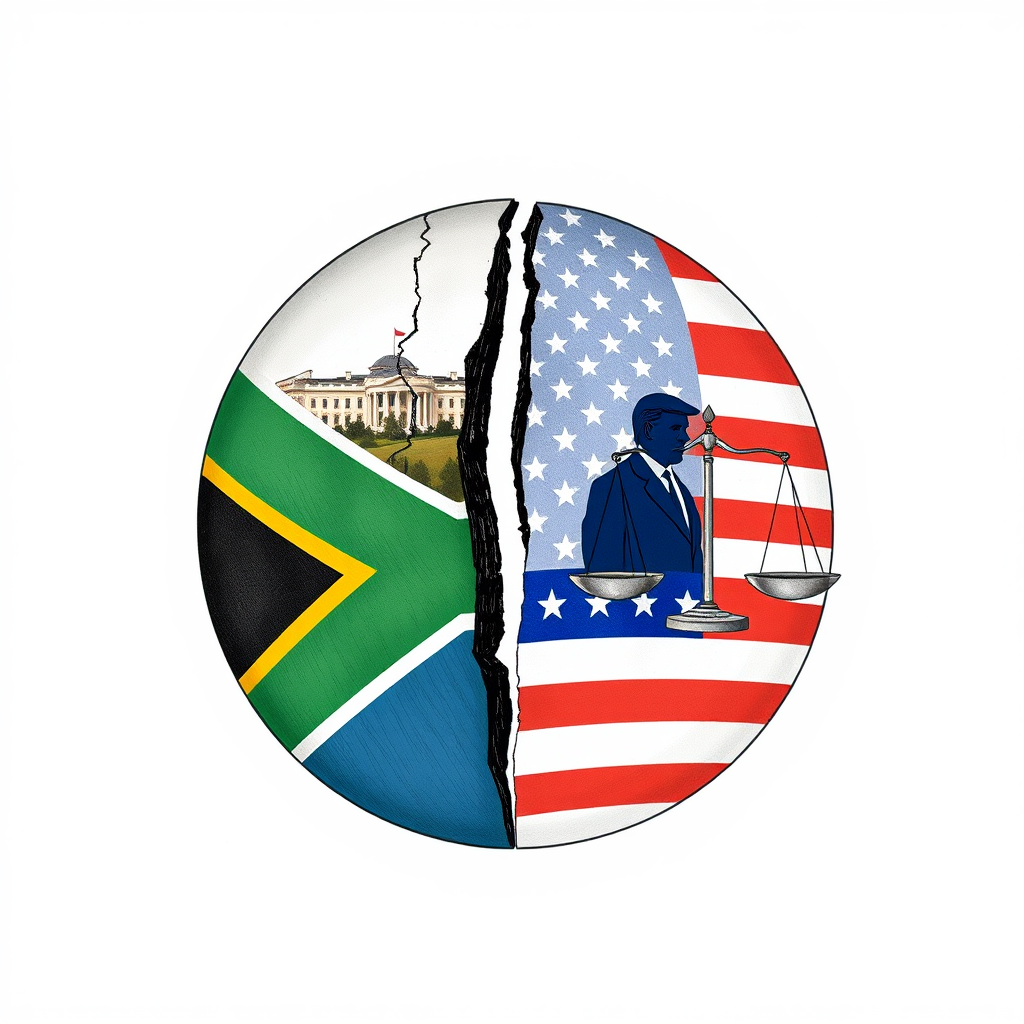US-South Africa Relations Sour Under Trump’s Scrutiny

Escalating tensions between the United States and South Africa have reached a critical point, culminating in a White House meeting between President Donald Trump and South African President Cyril Ramaphosa. The meeting, held amidst a backdrop of accusations, policy disputes, and historical grievances, attempts to address a deeply fractured relationship.
The core of the conflict centers around Trump’s repeated claims of a “genocide” against white South African farmers, allegations vehemently denied by Ramaphosa and dismissed by many as baseless. This narrative has fueled a series of increasingly hostile actions by the Trump administration, including the suspension of foreign aid to South Africa, the expulsion of the South African ambassador, and the acceptance of Afrikaner refugees – a move critics view as selectively prioritizing a specific group while ignoring broader refugee crises. The administration cites the South African Expropriation Act of 2024, which allows for land redistribution without compensation, as justification for these actions, framing it as discriminatory against white landowners.
However, the context of this act is crucial. South Africa’s history of colonialism and apartheid has resulted in a deeply unequal land distribution, with a small minority of white South Africans owning a disproportionately large share of the land. The act aims to address this historical injustice, though its implementation remains contentious. The Trump administration’s framing ignores this historical context, presenting the issue solely as a case of persecution.
Beyond the land issue, disagreements extend to South Africa’s foreign policy. The U.S. has criticized South Africa’s case against Israel at the International Court of Justice, accusing Israel of genocide in Gaza, and its strengthening ties with Iran. These disagreements highlight a broader divergence in foreign policy priorities.
The situation is further complicated by the involvement of Elon Musk, born in South Africa and still a citizen. Musk has publicly criticized South Africa’s ownership laws and his AI bot, Grok, briefly posted content referencing “white genocide,” prompting accusations of amplifying harmful narratives.
The acceptance of Afrikaner refugees raises questions about the consistency of U.S. immigration policy. While the administration claims to be responding to violence, critics point out the selective nature of this response, given the ongoing refugee crises around the world. The U.S. resettlement program for Afrikaners, described by South African officials as ironic given the group’s economic privilege, appears to be driven by political considerations rather than humanitarian concerns.
Ramaphosa, in pre-meeting statements, expressed hope for a trade deal and a mending of relations, acknowledging the interconnectedness of the two nations. However, the deep-seated mistrust and policy disagreements present significant obstacles. The meeting represents a crucial opportunity to de-escalate tensions, but a genuine resolution requires a willingness to acknowledge historical injustices, engage in constructive dialogue, and prioritize mutual respect.
The situation is a concerning example of how domestic political agendas can distort foreign policy and exacerbate international tensions. The Trump administration’s approach, characterized by accusations and punitive measures, risks further isolating South Africa and undermining regional stability. A more nuanced and diplomatic approach, focused on addressing the root causes of inequality and promoting constructive engagement, is essential to building a sustainable and mutually beneficial relationship.